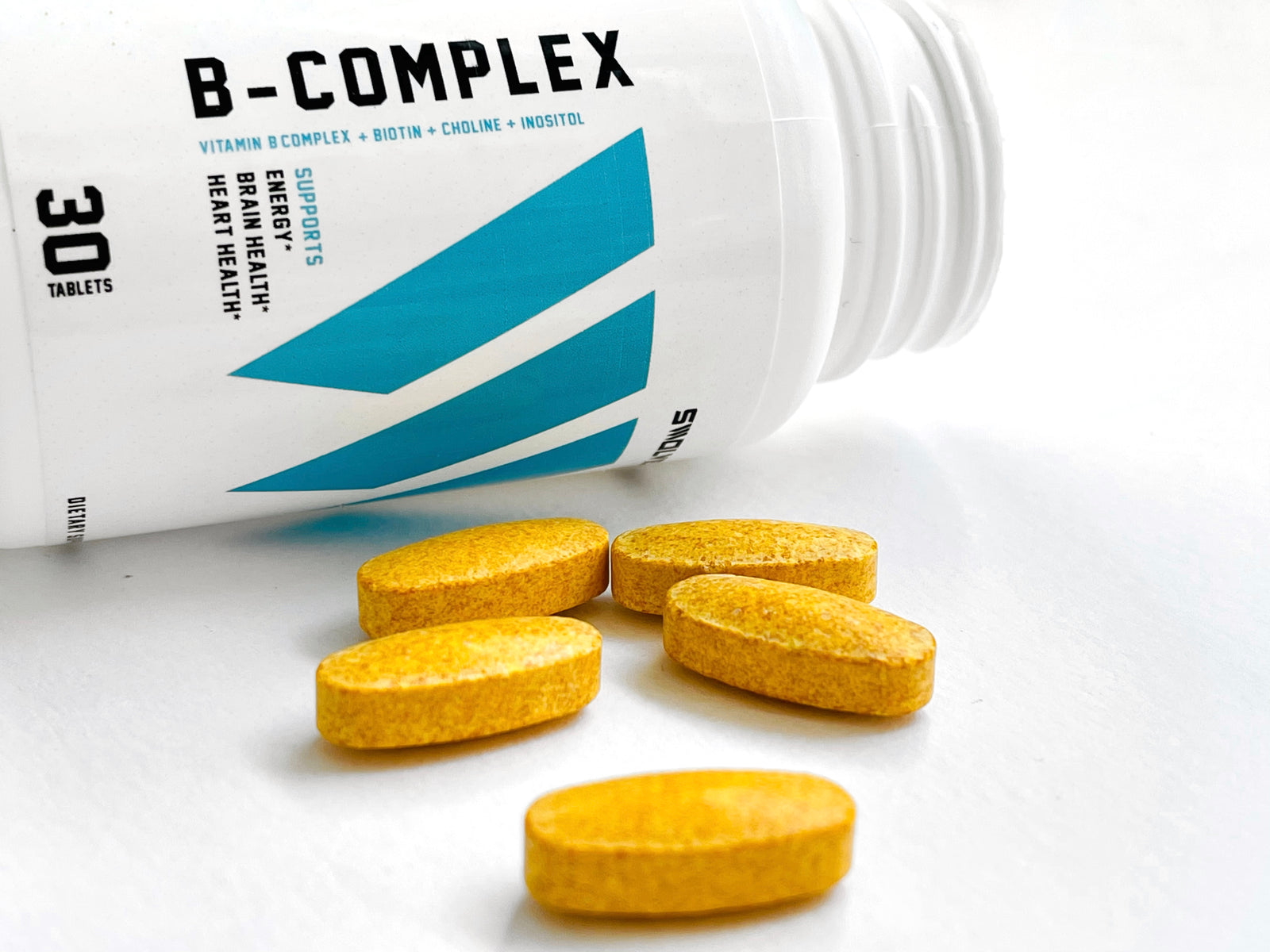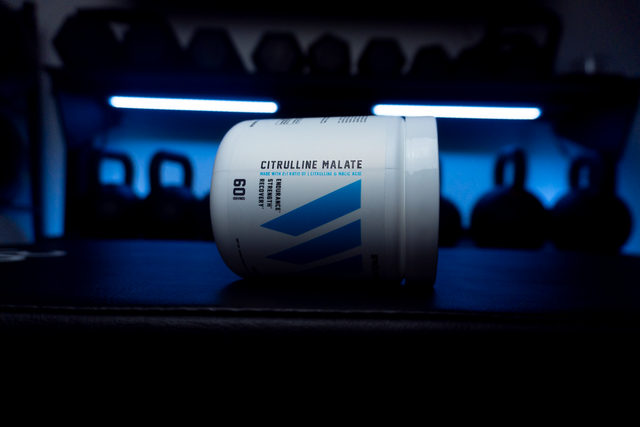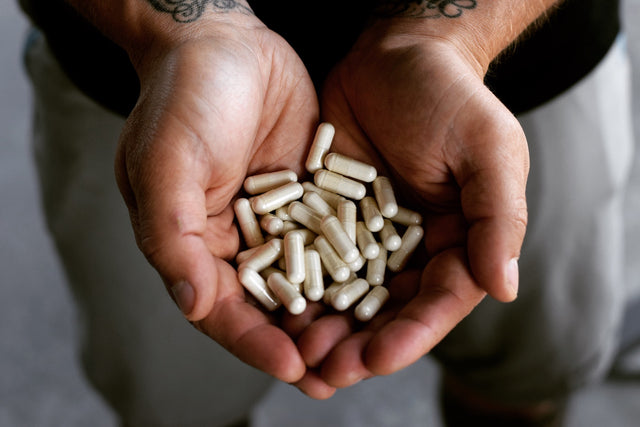The best way to boost your immune system is to be pro-active rather than re-active. By now, you know that you can’t control when you get the sniffles or when your immune system is compromised. But you can take the necessary steps to help boost your immune system and protect yourself from outside variables. The best and most proven ways to boost your immune system, is through nutrition, exercise, and proper supplementation. Various micronutrients are essential for overall health and wellbeing and could be hard to obtain through diet alone. We’re going to review the best supplements to boost your immune system, so you can spend less time sniffling and more time feeling great and being healthy.
The 7 Best Supplements To Boost Your Immune System
Immune Booster #1: Vitamin A
Vitamin A is a critical micronutrient that promotes growth, development, and boosts immune function. Every tissue in the human body needs Vitamin A, to build and repair itself. Vitamin A, is a fat-soluble vitamin that is part of the compounds that include beta-carotene [R]. Beta-carotene is known as the “Pro-Vitamin A” since it can convert into Vitamin A when needed. Vitamin A can help boost your immune system by building the body’s resistance to infection by stimulating white blood cells and increasing antibody activity [R].
Adequate nutrition is crucial to maintain optimal levels of energy sources, macronutrients, and micronutrients to promote healthy immune response. You can get more vitamin A in your diet through eating food such as
Vitamin A Rich Foods |
|
Apricots |
|
Broccoli |
|
Carrots |
|
Dark Leafy Greens |
|
Sweet Potatoes |
|
Yams |
|
Cottage Cheese |
|
Whole Milk |
|
Mangos |
|
Peaches |
|
Pumpkin |
If you don’t include the foods above regularly in your diet, then supplement with a once-daily multivitamin. We recommend supplementing with Swolverine’s Multivitamin since it has 100% of the daily recommended intake of Vitamin A.
Immune Booster #2: Vitamin B6
Like other essential micronutrients, Vitamin B6 is critical for a healthy immune system. Vitamin B6 is also known as pyroxidine serves many important functions, including the creation of proteins, hormones, and also helps carry signals between nerve cells in your brain. Vitamin B6 plays an integral role in the creation of white blood cells. White blood cells regulate immune function. Vitamin B6 also assists your body to create a protein called interleukin-2, which coordinates the actions of white blood cells, to regulate immune system function.
Vitamin B6 Rich Foods |
|
Avocados |
|
Bananas |
|
Garbanzo bans |
|
Lentils |
|
Soybeans |
|
Chicken |
|
Soybeans |
|
Sunflower Seeds |
Supplement with a once-daily Multivitamin from Swolverine and get 150% of your daily recommend intake of Vitamin B12 or get the entire B-Complex, in addition to Choline, Inositol, and Biotin which are also considered part of the B-Vitamin family.
Immune Booster #3: Vitamin B12

Vitamin B12 is part of the B-Vitamins Complex group, which consists of eight different B vitamins. Vitamin B12 plays an essential role in white and red blood cell production. Studies have shown that inadequate levels of Vitamin B12, is associated with a higher prevalence of weakened immune system health.
High levels of Vitamin B12 are naturally found in foods from animal sources, but no sources from plant foods. This is why Vitamin B12 supplementation is especially important for vegans or vegetarians. Good food sources of Vitamin B12 include
Vitamin B12 Rich Foods |
|
Beef |
|
Cheese |
|
Chicken Liver |
|
Clams |
|
Eggs |
|
Lamb |
|
Salmon |
|
Trout |
|
Tuna |
Supplement with a once-daily Multivitamin from Swolverine and get 150% of your daily recommend intake of Vitamin B12 or B-Complex to get the entire B-Complex, in addition to Choline, Inositol, and Biotin which are also considered part of the B-Vitamin family.
Immune Booster #4: Vitamin D3

Vitamin D3 is synthesized through your skin, via a process that requires sunlight, specifically from ultraviolet B radiation. Alternatively, it can be obtained through diet or from supplements [R]. Vitamin D plays a pivotal role in immune function, regulating cellular growth, how your nervous and muscular system work, your bone health, and many other processes. Research shows that Vitamin D deficiency is associated with increased susceptibility to infection [R].
There have been multiple studies, that show lower levels of Vitamin D are associated with greater risks of infection. One study, with almost 19,000 participants showed that individuals with lower vitamin d levels, were likely to report an upper respiratory tract infection than those with sufficient levels even after adjusting for variables including season, age, gender, body mass and race [R].
RELATED ARTICLE Do I Need Vitamin D3?
How do you get more vitamin D in your diet? Well, the recommended daily intake is 600 IU. Try and get some of the foods below, to get more vitamin D in your diet to give your immune system a boost
Vitamin D Rich Foods |
|
Salmon |
|
Sardines |
|
Tuna |
|
Cod Liver Oil |
|
Eggs |
|
Mushrooms |
In addition to the foods above, we always recommend taking a Vitamin D3 supplement, especially during the winter months. Swolverine’s Vitamin D3 contains 10,000 and added olive oil IU to help give your immune system the boost it needs to keep you happy and healthy.
Immune Booster #5: L-Glutamine

L-Glutamine is essential for maintaining a healthy immune system. Often overlooked, endurance athletes and powerlifters alike can experience an increased susceptibility to infection, due to weakened immune systems while training. Glutamine is used by white blood cells to produce cytokines, (small proteins released by white blood cells). With an increased amount of cytokines, you invariably increase your body’s susceptibility to illness and protect your immune system.
In a randomized controlled trial published by the International Journal of Clinical Pharmacology and Therapeutics, 24 athletes were administered 10g of Glutamine per day for six weeks, to determine whether Glutamine supplementation alters immune function in athletes during heavy resistance training.
The results found that T-cell ratings (White blood cells that help mediate immune health) were extremely different between the groups, indicating a positive correlation that glutamine supplementation may be able to restore immune function and reduce the immunosuppressive effects of heavy-resistance training in athletes [R]
RELATED ARTICLE L-Glutamine: The Best Supplement For Muscle Recovery And Soreness
If you want to give your immune system a boost and recovery faster from your workouts, we recommend adding a scoop of Glutamine to your post workout recovery shake. Swolverine’s L-Glutamine supplement powder will help boost your immune system, and make sure you’re staying active and healthy.
Glutamine Rich Foods |
|
Beef |
|
Chicken |
|
Turkey |
|
Pork |
|
Nuts |
|
Milk |
|
Cottage Cheese |
|
Eggs |
|
Scallops |
|
Salmon, Tuna, Tilapia |
Immune Booster #6: Probiotics
Probiotics, or the billions of good bacteria that are found in your gut flora can have a severe impact on your overall immune health. In a pooled systematic analysis of 6 randomized control trials (RCTs) there was a significant reduction in the number of colds, with those that were administered treatment with probiotics compared to a placebo [R].
The gut houses the Gut Associated Lymphoid Tissues (GALT). These tissues help protect the body from microbial invasion via the gut, keeping you digestive system happy and healthy. A variety of gut and GALT immune cells such as T cells can cross the blood-brain barrier and influence neural activity, altering the immune system through modulating the activity of resident immune cells. Therefore, by adding in quality strains of probiotics into your diet, you can help boost immune system function, by protecting yourself against invading pathogens and microbes [R].
RELATED ARTICLE The Health Benefits Of Probiotics
Remember at the beginning when we were talking about being pro-active instead of re-active? The problem is, if you’ve ever taken antibiotics, you may have essentially dropped a nuclear warhead on your immune system. Antibiotics are administered to kill the infection, but the problem is, not only do they kill the bacteria causing infection, but they kill everything, including your good bacteria. This leaves you susceptible to invading pathogens, and unhealthy bacteria which can lead to unwanted sniffles and sickness.
Supplementing additional good bacteria or probiotics in your diet, can be the crucial component to boost your immune system.
We recommend taking Probiotix from Swolverine to ensure you maintain good immune health, by restoring healthy microbiota and warding off harmful bacteria.
Probiotic Rich Foods |
|
Kombucha |
|
Kefir |
|
Sauerkraut |
|
Tempeh |
|
Miso |
|
Yogurt |
|
Cottage Cheese |
Immune Booster #7: Zinc

Zinc is a ubiquitous micronutrient involved in maintaining the homeostatic integrity of human bodily functions, including immune efficiency and human metabolism. Zinc is also a cofactor for numerous enzymes including DNA and RNA replication protein structure, and protein synthesis. Zinc has an abundance of health benefits and plays an imperative role in human biological process and cellular function from a granular level to support major biological function [R, R]
RELATED ARTICLE The Health Benefits Of Zinc
One of the many great benefits of Zinc, is its ability to boost your immune health, specifically through signaling T-cell activation, which helps control and regulates the immune response. Zinc is also crucial for normal human development and cells mediating innate immunity, which suggests that it has a role in the prevention of free-radical damage and inflammatory responses [R]. Since zinc is essential for virtually every cellular process, observations during zinc deficiency indicate that the absence of this trace element severely affects the immune response [R]
According to a systematic review published in the Open Respiratory Medical Journal, Zinc lozenges were assessed to treat the common cold and upper respiratory infections. Out of thirteen randomized controlled trials, five of them used a total daily zinc dose of 75mg or more and uniformly found a 42% reduction in the duration of colds. The review concluded that high doses of zinc could effectively reduce the duration of the common cold when administered at a higher dose of 75mg or more [R].
RELATED ARTICLE How To Stay Healthy And Avoid Getting Sick
Zinc Rich Foods |
|
Oysters |
|
Beef |
|
Baked Beans |
|
Crab |
|
Pork Loin |
|
Lobster |
|
Peas |
|
Yogurt |
|
Wild Rice |
|
Pecans |
|
Peanuts |
The Best Supplements To Boost Your Immune System: Takeaway
Staying healthy is a fundamental key to staying happy. By supplementing the proper vitamins and nutrients to a healthy nutritious diet, you can help your boost your immune system and power your active lifestyle.
Our health is only as strong as our weakest link, and for many of us, our immune system is that weak link. High-intensity training and active lifestyles can depress the body’s intestinal system, keeping it from doing a sufficient job of keeping antigens (bacteria, viruses, fungi, and potentially allergenic or inflammatory proteins from food) out of the bloodstream.
The Immune Health Stack is an all season, year-round healthy immune support that fortifies your body’s natural healthy defenses and ability to adapt to stress factors. Check out the Immune Heath Stack and boost your immune system!
SWOLVERINE is an endurance athlete and active lifestyle brand. Made for the elite athlete, and the strong-willed our products were designed to fuel your athletic performance. We perform when you perform.
We believe that everyone can optimize not only their athletic performance but their human potential. The way we believe we can optimize performance is through transparency, clinically effective doses, and clinically proven ingredients with evidence-based outcomes. We provide the nutrients you need to power your active lifestyle.
References
Maggini, Silvia et al. “Immune Function and Micronutrient Requirements Change over the Life Course.” Nutrients vol. 10,10 1531. 17 Oct. 2018, doi:10.3390/nu10101531
Huang, Zhiyi et al. “Role of Vitamin A in the Immune System.” Journal of clinical medicine vol. 7,9 258. 6 Sep. 2018, doi:10.3390/jcm7090258
Mora, J Rodrigo et al. “Vitamin effects on the immune system: vitamins A and D take centre stage.” Nature reviews. Immunology vol. 8,9 (2008): 685-98. doi:10.1038/nri2378
Saper, Robert B and Rebecca Rash. “Zinc: an essential micronutrient” American family physician 79,9 (2009): 768-72.
Mcclung JP, Scrimgeour AG. Zinc: an essential trace element with potential benefits to soldiers. Mil Med. 2005;170(12):1048-52.
Review Zinc in human health: effect of zinc on immune cells. Prasad AS Mol Med. 2008 May-Jun; 14(5-6):353-7.
King JC. Zinc. In: Shils ME, Shike M, editors. Modern Nutrition in Health and Disease. 10. Philadelphia, Pa: Lippincott Williams & Wilkins; 2006. pp. 271–285.
Allan, G Michael, and Bruce Arroll. “Prevention and treatment of the common cold: making sense of the evidence.” CMAJ : Canadian Medical Association journal = journal de l'Association medicale canadienne vol. 186,3 (2014): 190-9. doi:10.1503/cmaj.121442
Kim N, Yun M, Oh YJ, Choi HJ. Mind-altering with the gut: Modulation of the gut-brain axis with probiotics. J Microbiol. 2018;56(3):172-182.
Aranow, Cynthia. “Vitamin D and the immune system.” Journal of investigative medicine : the official publication of the American Federation for Clinical Research vol. 59,6 (2011): 881-6. doi:10.2310/JIM.0b013e31821b8755
Ginde AA, Mansbach JM, Camargo CA., Jr. Association between serum 25-hydroxyvitamin D level and upper respiratory tract infection in the Third National Health and Nutrition Examination Survey. Arch Intern Med. 2009;169(4):384–90.
Song QH, Xu RM, Zhang QH, et al. Glutamine supplementation and immune function during heavy load training. Int J Clin Pharmacol Ther. 2015;53(5):372-6.










